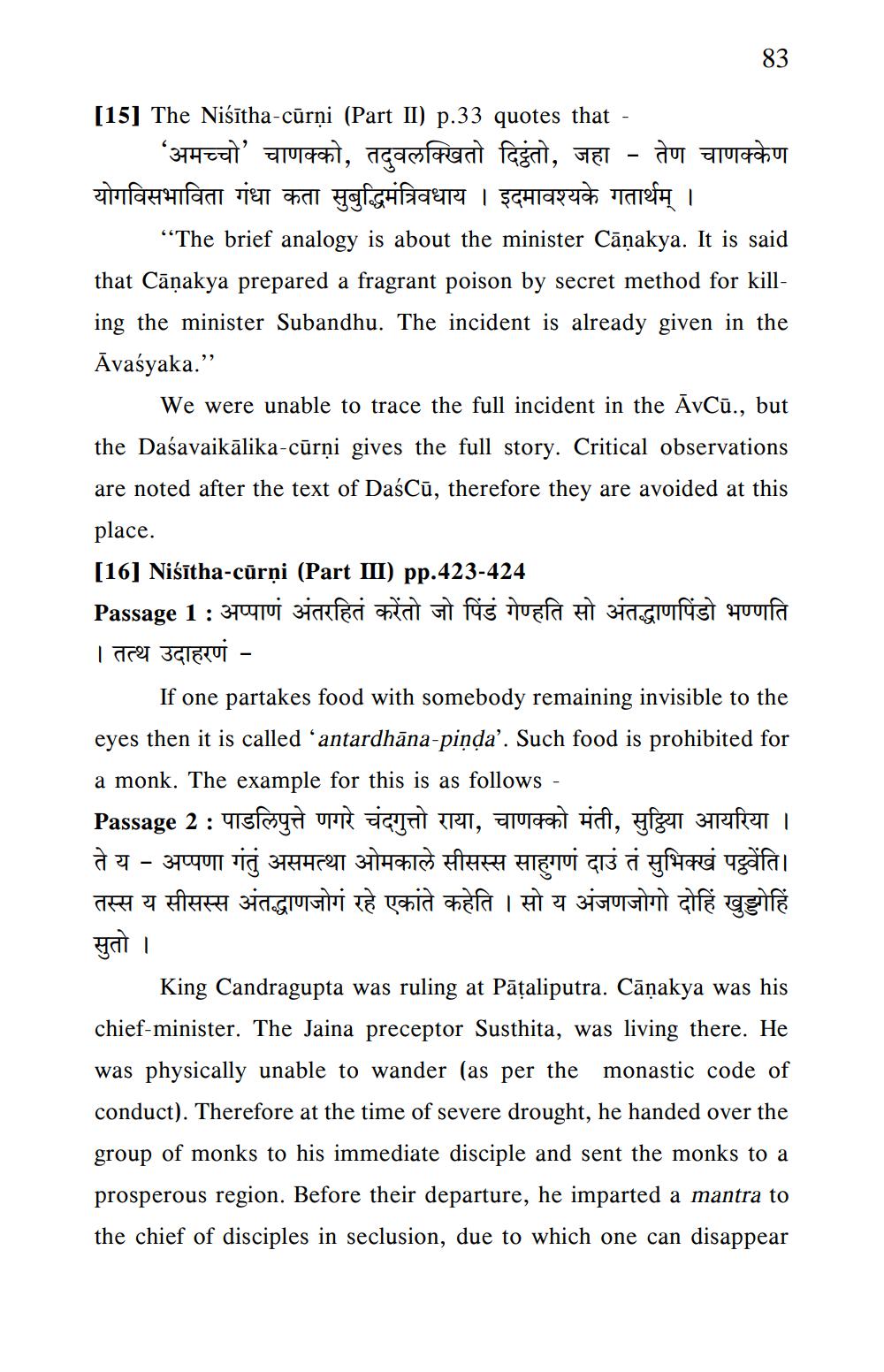________________
[15] The Niśītha-cūrņi (Part II) p.33 quotes that -
‘अमच्चो' चाणक्को, तदुवलक्खितो दिटुंतो, जहा - तेण चाणक्केण योगविसभाविता गंधा कता सुबुद्धिमंत्रिवधाय । इदमावश्यके गतार्थम् ।
"The brief analogy is about the minister Cāņakya. It is said that Cāņakya prepared a fragrant poison by secret method for killing the minister Subandhu. The incident is already given in the Āvaśyaka.”
We were unable to trace the full incident in the ĀvCū., but the Daśavaikālika-cūrņi gives the full story. Critical observations are noted after the text of DaśCū, therefore they are avoided at this place. [16] Niśītha-cūrņi (Part III) pp.423-424 Passage 1 : अप्पाणं अंतरहितं करेंतो जो पिंडं गेण्हति सो अंतद्धाणपिंडो भण्णति । तत्थ उदाहरणं -
If one partakes food with somebody remaining invisible to the eyes then it is called 'antardhāna-pinda'. Such food is prohibited for a monk. The example for this is as follows - Passage 2 : पाडलिपुत्ते णगरे चंदगुत्तो राया, चाणक्को मंती, सुठ्ठिया आयरिया । ते य - अप्पणा गंतुं असमत्था ओमकाले सीसस्स साहुगणं दाउं तं सुभिक्खं पठ्वेति। तस्स य सीसस्स अंतद्धाणजोगं रहे एकांते कहेति । सो य अंजणजोगो दोहिं खुड्डोहिं सुतो ।
King Candragupta was ruling at Pāțaliputra. Cāņakya was his chief-minister. The Jaina preceptor Susthita, was living there. He was physically unable to wander (as per the monastic code of conduct). Therefore at the time of severe drought, he handed over the group of monks to his immediate disciple and sent the monks to a prosperous region. Before their departure, he imparted a mantra to the chief of disciples in seclusion, due to which one can disappear




